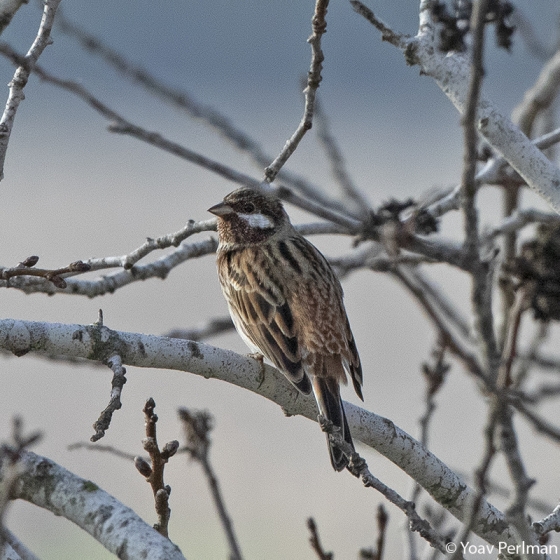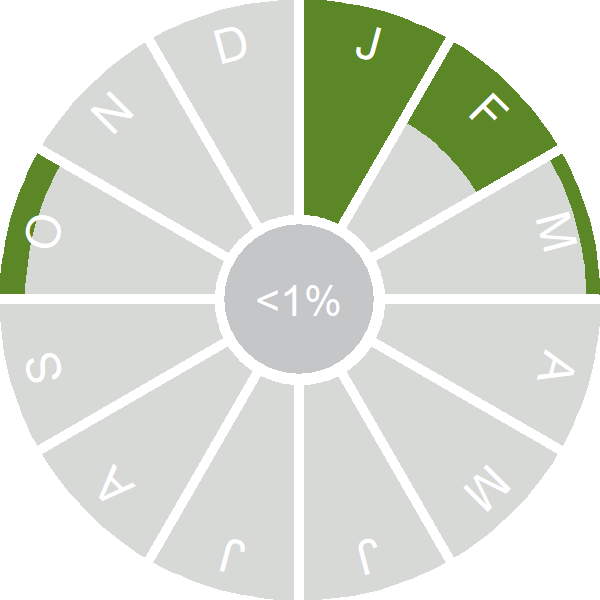Pine Bunting

Introduction
Closely related to the Yellowhammer – and with which it may hybridise – this is a rare but annual visitor from Russia, with records peaking during October.
Most populations are migratory, moving south for the winter.

Key Stats
Status and Trends
Conservation Status
Population Size
Population Change
Population trends of this scarce species are not routinely monitored.
Distribution
This species is a rare vagrant and was recorded during Bird Atlas 2007–11 as shown on the map.
Occupied 10-km squares in UK
or view it on Bird Atlas Mapstore.
or view it on Bird Atlas Mapstore.
European Distribution Map
Distribution Change
This vagrant is too rarely reported to map distribution change.
Seasonality
Pine Bunting is a very rare vagrant, with some records in autumn and winter.
Weekly pattern of occurrence
The graph shows when the species is present in the UK, with taller bars indicating a higher likelihood of encountering the species in appropriate regions and habitats.

Movement
Britain & Ireland movement
Biology
Survival and Longevity
Survival is shown as the proportion of birds surviving from one year to the next and is derived from bird ringing data. It can also be used to estimate how long birds typically live.
Classification, names and codes
Classification and Codes
- Order: Passeriformes
- Family: Emberizidae
- Scientific name: Emberiza leucocephalos
- Authority: SG Gmelin, 1771
- BTO 2-letter code: EL
- BTO 5-letter code: PINBU
- Euring code number: 18560
Alternate species names
- Catalan: sit capblanc
- Czech: strnad belohlavý
- Danish: Hvidkindet Værling
- Dutch: Witkopgors
- Estonian: männitalvike
- Finnish: mäntysirkku
- French: Bruant à calotte blanche
- German: Fichtenammer
- Hungarian: fenyosármány
- Icelandic: Lerkitittlingur
- Irish: Gealóg Phéine
- Italian: Zigolo golarossa
- Latvian: priežu sterste, taigas sterste
- Lithuanian: baltagalve starta
- Norwegian: Hvithodespurv
- Polish: trznadel bialoglowy
- Portuguese: escrevedeira-de-barrete-branco
- Slovak: strnádka bielohlavá
- Slovenian: beloglavi strnad
- Spanish: Escribano cabeciblanco
- Swedish: tallsparv
- Welsh: Bras Pinwydd

